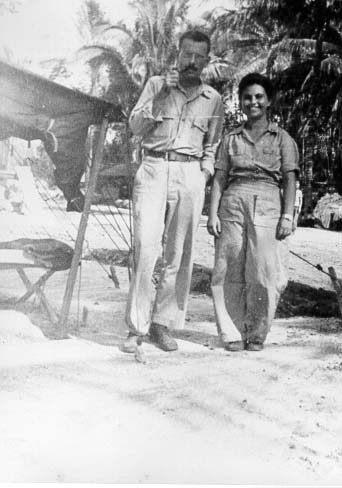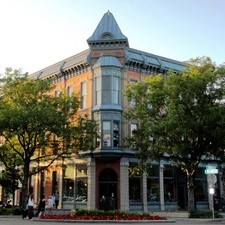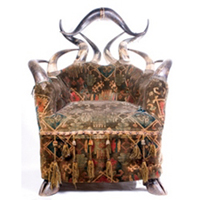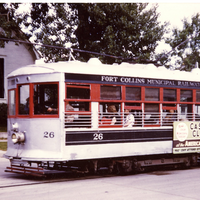Nursing in Three Wars
Nursing in Three Wars
Althea Williams, Retired Colonel, U.S. Army
November 30, 1994
Interviewer: Rheba Massey
Miss Williams was a registered nurse from Fort Collins in 1942 and was soon recruited to serve the military. She returned to the city in 1945 and used her GI bill to study for degrees in Home Economics and Occupational Therapy. She supported her mother and herself and joined the organized reserve. She received orders to report when the Korean war broke out and served for two and a half years, mostly in Japan. She returned to the states in 1953 and earned a master's degree in Hospital Administration. During the Vietnam War, she was the "chief nurse" in Vietnam, the USARV chief nurse, and the 44th Medical Brigade nurse for a year.
In her interview she reflected on changes in medical treatment. During W.W.II she spent about three years in tents with "evacuation hospitals" in Australia, New Guinea, the Netherlands East Indies and the Philippines. A major challenge was "scrub typhus" and there were no treatments but nursing care. The men's temperatures would reach 108 degrees and the nurses would spend all day giving alcohol sponges to reduce temperatures.
By the Korean and Vietnam wars, sick and wounded benefited from "hi-tech" treatments. "Every war we've ever had, World War II, the Korean War, the Vietnam War, has made a major impact in your treatment in the United States. Many people are living today ... because of the knowledge that was given to the medical people ... I nursed before penicillin even came along. So you did nursing care because you didn't have all these other things."
"Early ambulation is a straight result from W.W.II. ... We found out we had less pneumonia, less blood clots, less pulmonary emboli, all the rest of it because of the treatment and knowledge gained in W.W.II."
In the Korean War the use of helicopters provided early evacuation. "We developed the MASH units where we set up a hospital with 60 beds and we would have patients on the operating room table for trauma treatment within less than 6 minutes."
She cited the importance of studies done during and after the war on such aspects as statistics of patient load, change in medical practice, and trauma treatment.
When asked about the MASH movie and TV series, she reflected that it was accurate from the standpoint of the choppers, the triage, the tents and such physical aspects, but "it was a satire."
Had she observed any differences between the response of the servicemen through the three wars?
"Yes and no ... during W.W.II you were together ... and everybody was there. Now I'll make one statement. I probably hate war more than any of these so-called anti-war activists. ... I have no respect for Jane Fonda. She caused more deaths, all because of her actions." She felt that units serving and staying together in W.W.II produced more loyalty to one's country and buddies. "During the Korean War, it was a little bit less because you were moving in and out. When you had the Vietnam War, you had a year tour. You had the buddy system, but it was in, out, in; you do not develop the esprit de corps that you have in single units. ... The problem with the Vietnam War was when the young men and women came home, they were treated like scum and so they just buried their experience."
She believes W.W.II was worse from the standpoint of psychiatric problems during war, because the troops were under sustained heavy attacks. She does acknowledge that those returning from Vietnam had a hard time because of the lack of support and sympathy they met when they returned.
"When you have a traumatic experience, you never forget." She feels that sharing experiences and supporting each other is helpful for those who served in Vietnam and has taken part in a number of reunions. She told a moving story of a veteran who 25 years after losing his legs in Vietnam, sought out and thanked the nurse he'd thought so cruel for not helping him back into his wheelchair when he'd fallen. "Just because you lost your legs, you didn't lose your life," she told him then, and he'd made her statement come true, excelling in athletics and helping other amputees.
Williams retired as a Colonel, has traveled extensively and made her home in Fort Collins where she has been an active volunteer with the Red Cross and other organizations.


Preserving the history of Fort Collins, Colorado & the Cache la Poudre region






